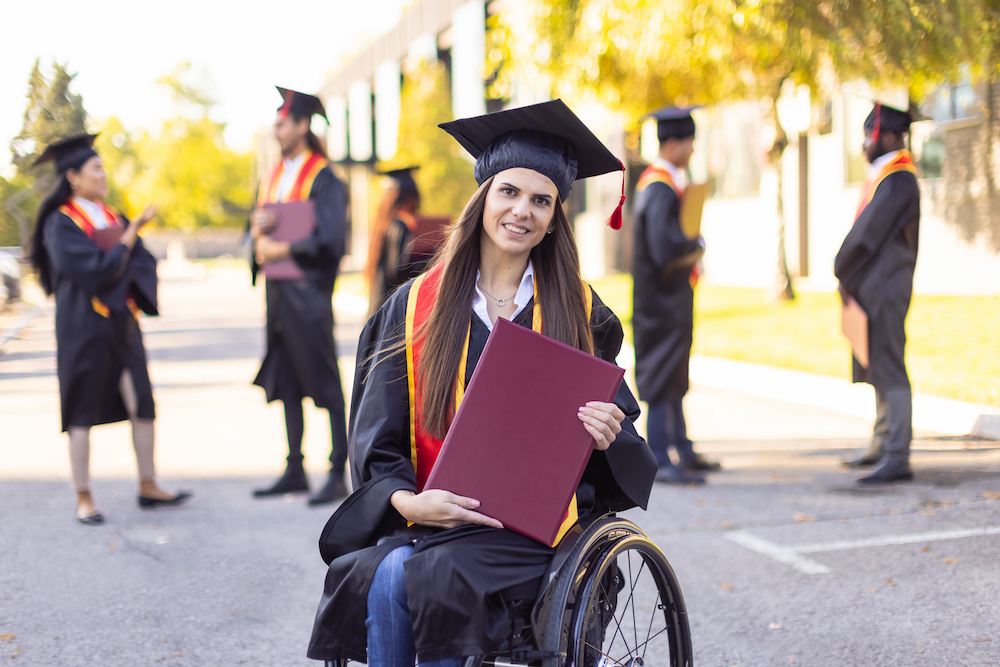
Who is attending tertiary institutions?
Having access to education can affect other ways that people with disability can take part in everyday life. For example:
- employment
- economic independence.
The right to education
Under the Disability Discrimination Act 1992 (the Act), Australian Government agencies are required to make sure information and services are available in an accessible manner to people with disability.
The Act also says that it is against the law for any educational institute to discriminate against a person because of their disability.
As the Australian Human Rights Commission (AHRC) explains ‘Access for people with disabilities, including access to the goods, services and facilities provided by tertiary education institutions, can no longer be an after-thought. The Act is not about limited or 'parallel' access, but promotes and protects equality of access – physical, informational and attitudinal.’
The AHRC encourages tertiary institutions to develop disability discrimination action plans as a way of helping them to meet the educational needs of the whole community.
The Disability Standards for Education 2005 (the Standards) outline the obligations of education and training providers under the Act. The Standards are a way of making sure students with disability can access education in the same way as students without disability. It includes criteria for enrolment, participation, curriculum delivery – even bullying of people with disability.
The Standards are reviewed every five years, with the most recent review taking place in 2020. You can read a summary of the review, recommendations and final report on the Department of Education website.
Accessibility on campus
Tertiary education institutions will typically offer a range of accessibility support services to support students with disability to get the most out of their studies.
Students can request reasonable adjustments to help them take part in education on the same basis as everyone else. For example, having extra time to finish an exam or assessment or taking rest breaks.
They can also loan equipment and assistive technology and ask for accessible teaching spaces.
Most institutions will also offer to arrange academic support workers to provide support in class. For example, Auslan interpreters and note-takers.
The challenge of accessible content
However, something that is deeply important for both students and institutions to consider is the accessibility of learning content. No one can learn if they cannot access the content. Students with disability often have to work harder, study longer, or navigate content for a greater period of time than people without disability.
Inaccessibility can lead to:
- confusion
- ineffectual learning
- falling behind
- wasting time and money.
Some institutions will readily offer course materials in alternative formats such as enlarged print, Braille and electronic files.
However, it is crucial that learning materials are compatible with assistive technology, including screen readers.
Students with disability face challenges that students or teachers without disability might not even consider. For example, how do you navigate to your online lecture if you aren’t able to use a keyboard or mouse? Spoiler alert, the technology to do this is called Head Pointer and already exists on Mac computers. Learning materials need to allow for this sort of technology to be accessible.
This is reinforced by the Australian Disability Clearinghouse on Education and Training, who explains that there are seven principles of universal design in education.
The fourth principle is ‘perceptible information’:
- information is communicated in multiple ways
- web content adheres to WCAG standards
- information is compatible with assistive technology
If you’re a student yourself, it’s crucial to flag issues of accessibility as early as possible so your school can fix them. That might
look like:
- accessible learning spaces
- documents that can be read out loud by a screen reader
- websites that can be navigated using only a keyboard.
The Victorian Equal Opportunity & Human Rights Commission can provide advice on the rights of students with disability.


